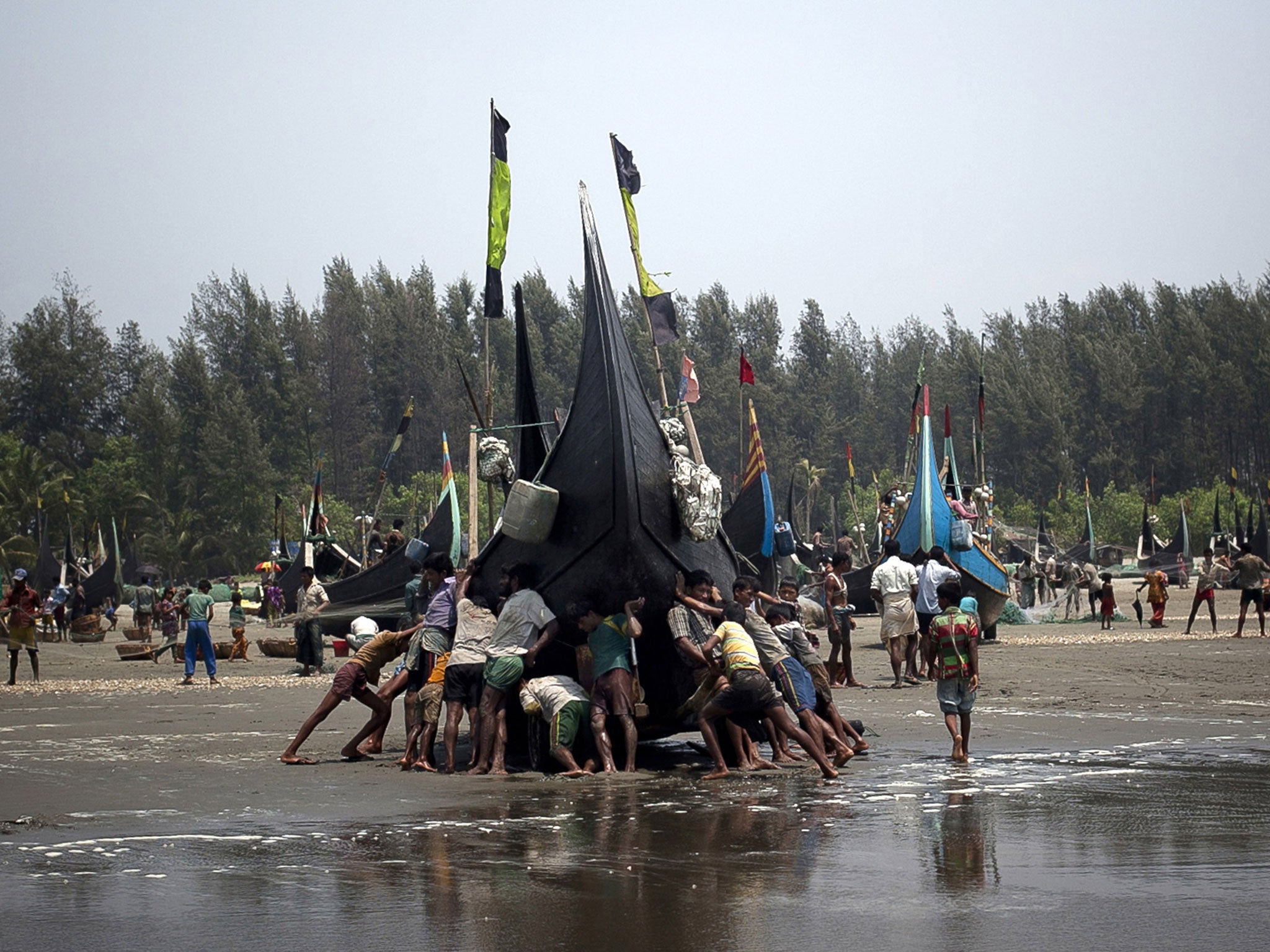20,000 people have risked lives crossing the Indian Ocean this year, says UN report
Tens of thousands of people are braving the Southeast Asian seas, many of whom are fleeing the inter-communal violence in Burma

Your support helps us to tell the story
From reproductive rights to climate change to Big Tech, The Independent is on the ground when the story is developing. Whether it's investigating the financials of Elon Musk's pro-Trump PAC or producing our latest documentary, 'The A Word', which shines a light on the American women fighting for reproductive rights, we know how important it is to parse out the facts from the messaging.
At such a critical moment in US history, we need reporters on the ground. Your donation allows us to keep sending journalists to speak to both sides of the story.
The Independent is trusted by Americans across the entire political spectrum. And unlike many other quality news outlets, we choose not to lock Americans out of our reporting and analysis with paywalls. We believe quality journalism should be available to everyone, paid for by those who can afford it.
Your support makes all the difference.With 20,000 Southeast Asians embarking on dangerous sea crossings from the Bay of Bengal in the first half of this year, the scale of the region’s refugee crisis has been laid bare by a new UN report.
In its Irregular Maritime Movements report, the UN High Commissioner for Refugees has revealed that an estimated 87,000 people have embarked on dangerous journeys across Southeast Asian waters since July 2012 in order to escape the violence in Burma’s Rakhine State. 53,000 are thought to have journeyed in the 12 months ending June 2014, an increase of 61 per cent.
Many of these asylum seekers are Rohingya, an Islamic ethnic group who were victim of riots in Burma that left over 100,000 displaced, and who are paying up to $300 to board overcrowded vessels at the Bay of Bengal. Bangladeshis are also embarking on what the UN calls this “dangerous journey in search of safety and stability”. Most are men, but there are growing number of women and children seeking asylum.
The report states that more than 200 have people died this year fleeing from the violence at the Bangladesh-Burma border.
On these boats, holding up to 700 people at a time, passengers are reportedly suffering from malnutrition and are being abused. The UN refers to unconfirmed reports of passenger deaths due to illness, heat, lack of food and water, and severe beatings.
Upon their arrival in Thailand, one of several possible destinations, many of the asylum seekers who have survived the journey are packed up into trucks, forced to lie atop 20 other people, and taken to smugglers camps. They are held there for up to six months they pay a further fee – between $1,500 and $2,200. They will be held longer, and given more severe beatings if they cannot pay.
Elsewhere in the region, there are more than 7,000 asylum-seekers and refugees currently being held in detention facilities, including over 5,000 in Australia and its offshore processing centres.
The UNCHR report concludes: “All these developments take place in the context of a very challenging protection environment for refugees in the region.
"States, including Thailand, Malaysia and Indonesia, are not signatory to the 1951 Refugee Convention and lack formal legal frameworks for dealing with refugees.
"Without a legal status they are often at risk of arrest, detention, and deportation under immigration laws.
"It also makes legal employment impossible and drives many people, including women and children, into exploitative and vulnerable situations.”
Join our commenting forum
Join thought-provoking conversations, follow other Independent readers and see their replies
Comments